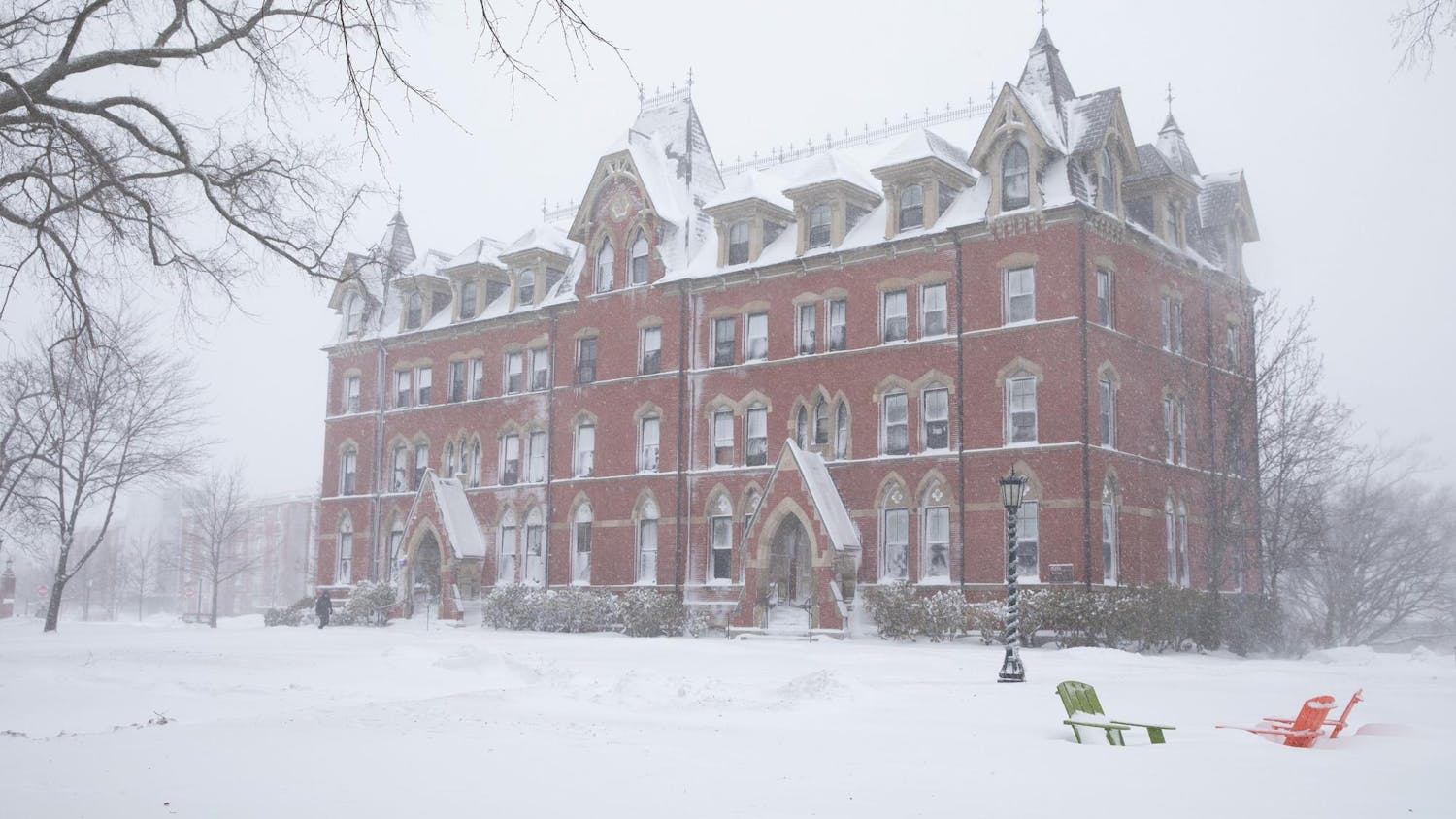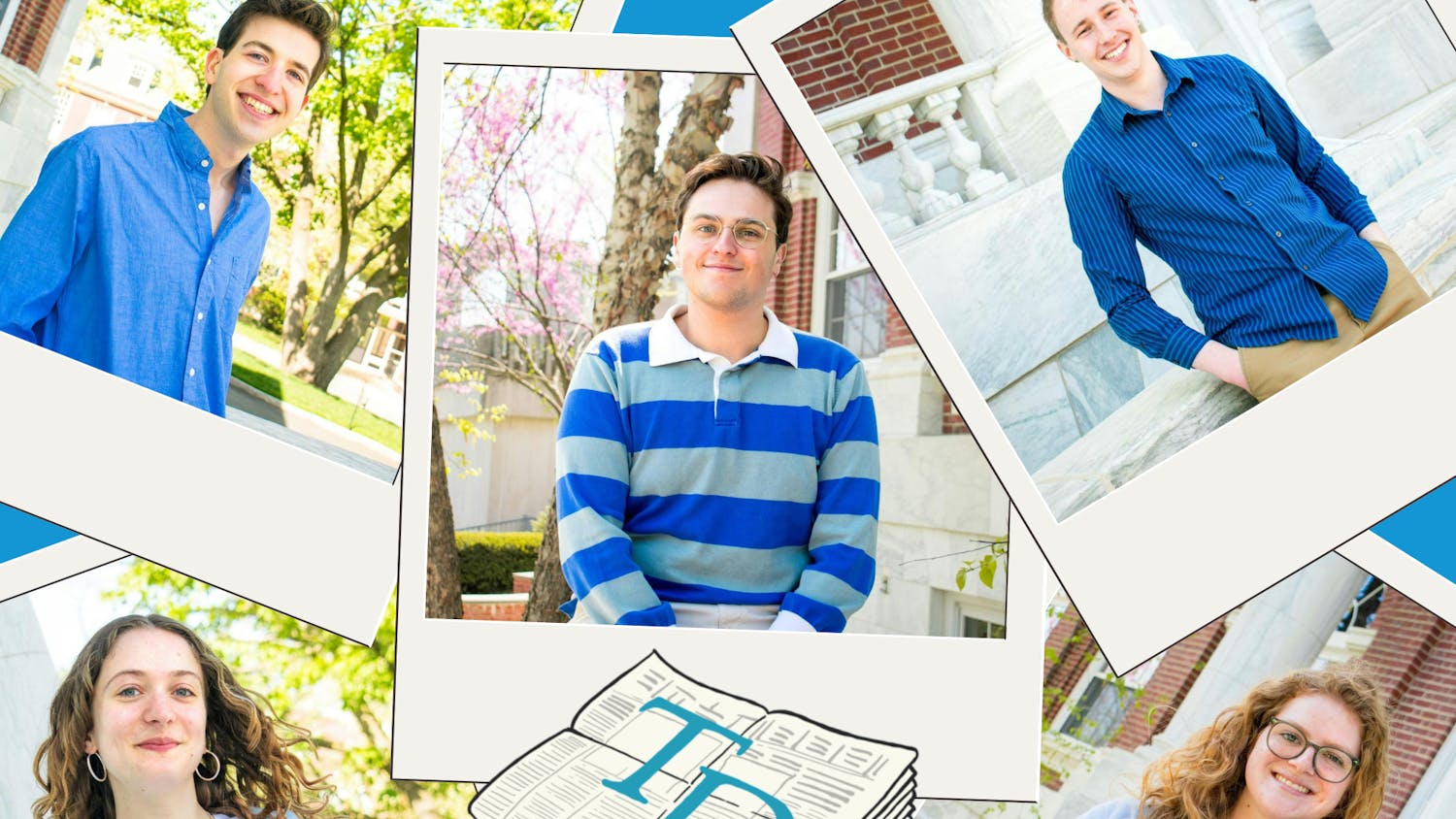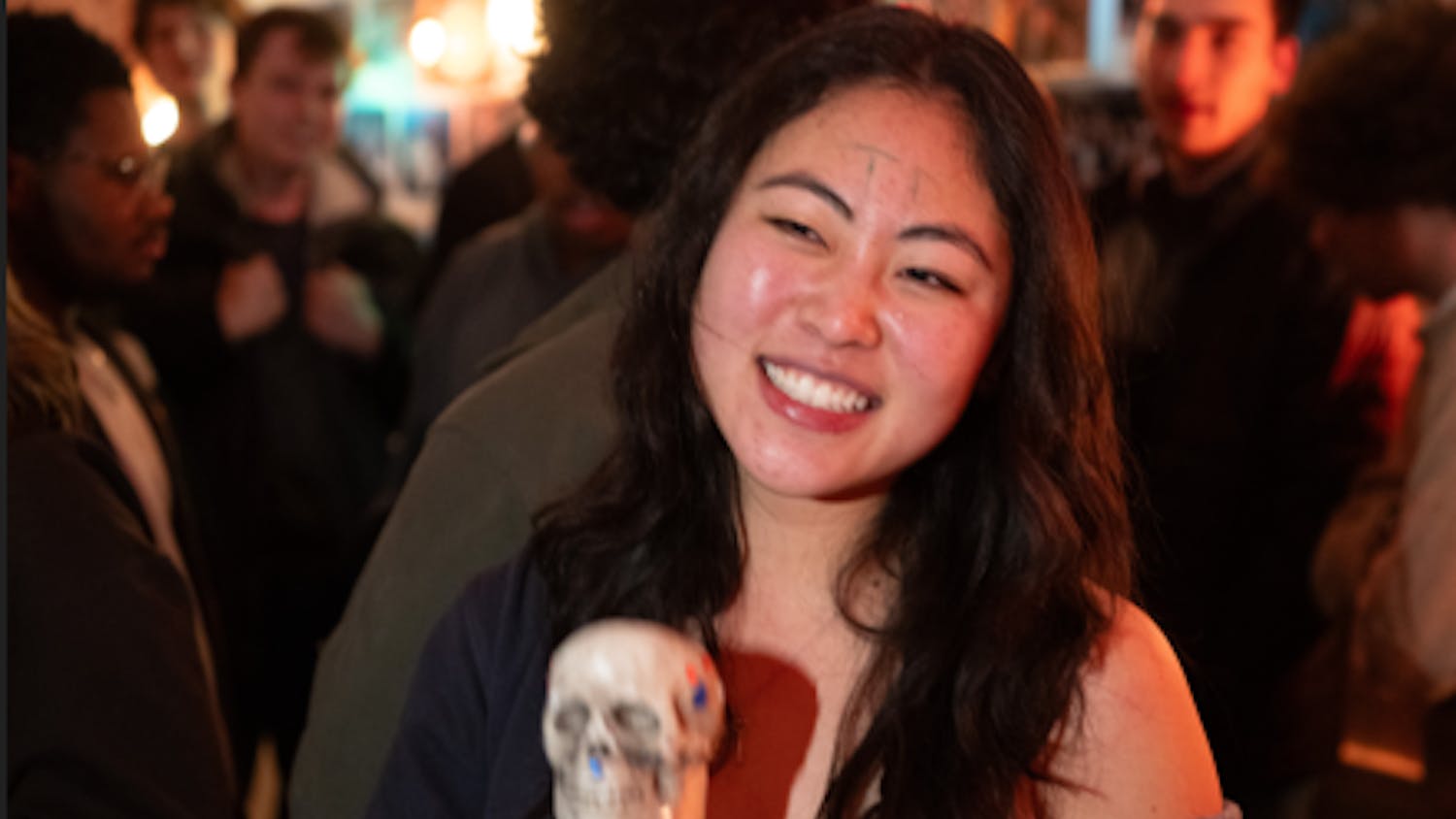The Peace and Justice Studies (PJS) Program will continue for the upcoming academic year under the new leadership of Associate Professor of Philosophy Erin Kelly. The Office of the Dean of Arts and Sciences raised the possibility of ending the program at the beginning of the semester but has decided to continue the program as it redefines itself, Kelly said.
“A number of faculty met with the dean and communicated how and why we thought the program was important to the university and to the undergraduate curriculum,” Kelly said.
The Office of the Dean of Arts and Sciences questioned whether the program was sustainable, as faculty interest has declined in recent years.
“The program has had small but steady student interest, but faculty interest had drifted to other places," Dean of Arts and Sciences James Glaser said. "This has led us to question whether it's the right program at the right time."
Professor of Sociology Paul Joseph, who helped found the PJS program and served as its director for more than 20 years, said that the challenges PJS faces with declining faculty interest are endemic to all interdisciplinary programs.
“Tufts is organized around departments, not interdisciplinary programs. Everyone’s first home is their department," Joseph said. "It’s always swimming against the tide to have faculty be invested in an interdisciplinary program."
However, the problem became particularly pronounced in the PJS program, as other interdisciplinary majors attracted faculty interest away.
“The number of faculty participating in the program has dwindled,” Glaser said. “At the same time, we have very vibrant programs in [the Consortium of Race, Diaspora and Colonialism Studies], Africana studies, environmental studies and some areas that are contiguous in curriculum.”
The lack of faculty interest has manifested itself in many ways. For example, a PJS executive board composed of students and faculty used to meet every two weeks to govern and make decisions regarding the program, according to Joseph. However, current Director Bruce Hitchner said the board has not been active in five or six years.
Additionally, Hitchner said that Tufts administrators were not able to find a replacement director when he began a sabbatical last year, forcing him to act as director while on leave.
Another problem the PJS program faces is the lack of an accurate course list. According to Kelly, many of the courses that are supposed to count toward the major do not exist, and students often have trouble transferring credits from abroad.
“I would say that a third of the courses listed aren’t really offered,” Noah Weinberg, a graduating senior majoring in PJS, said.
Facing these challenges, Glaser and the deans of academic affairs reconsidered the program's structure.
However, faculty interested in saving the program met with colleagues and were able to convince the dean that faculty interest was sufficient. The program will now be administered under the philosophy department, according to Kelly. In the past, the program had its own administrative coordinator in Assistant Director Dale Bryan, but his position will be cut in order to save costs, Kelly said.
“The only thing I can tell you about the unfolding context is that the program is being reorganized and my particular position (role) is being eliminated,” Bryan told the Daily in an email.
Glaser said that costs formerly going toward the PJS program can be diverted to more active, growing programs that have greater student demand, such as Community Health and Environmental Studies.
However, Weinberg argued that the lack of vitality in PJS is precisely because it is under-resourced. Weinberg added that the university always has money for what it prioritizes.
“I think this is a moment politically in our country in which our university should be more deeply investing in a program of peace and justice studies,” Weinberg said. “One way they could do this is hiring faculty exclusively for peace and justice studies. All the faculty that are affiliated with PJS are in other departments, and they aren’t as invested.”
Glaser questioned whether PJS could still occupy a unique niche at the university given the growth of other programs that address themes of peace and justice.
"It’s not that we’re opposed to peace or justice,” Glaser said. “It’s a question of where it’s best to study peace and justice and where that’s going to resonate the most with students and faculty.”
Joseph said the field of peace and justice studies developed during the 1970s and 1980s as scholars became concerned with the prospect of peace in modern society, following the Vietnam War and the increase in nuclear proliferation. Hitchner questioned whether there was still a place for peace and justice studies in today’s academic landscape.
"New programs were started, around 2000 onward, which were niche areas within which had been traditionally peace and justice studies," Hitchner said. "As they filled up with faculty involvement and student engagement, there was some natural draining of peace and justice."
As a professor in the Department of Classics, Hitchner noted that his own field had to undergo a revitalization as it lost its prominence over time.
However, Joseph believes that PJS still occupies a unique niche, especially given the major’s active citizenship and internship component.
“I think one of the other distinctive aspects of PJS is you don’t only study peace, but you act to achieve peace,” Joseph said. “If you are a citizen on this planet, it’s important to act to achieve peace. It’s one of the reasons we require an internship which engages social change.”
Kelly noted that the major’s focus on civic engagement and active citizenship aligns with Tufts’ mission.
“It’s a really important alternative to international relations,” Kelly said. “It has more of a normative or ethical focus than international relations, which tends to be a more empirical approach to thinking about politics.”
Kelly said that the next academic year will be a time for students and faculty to work together on revitalizing the major, including updating the course list and exploring partnerships with the Institute for Global Leadership and Jonathan M. Tisch College of Civic Life.
"I’m open to hear what students have to say about where they would like to see the major get stronger or move in new directions,” Kelly said.
Weinberg said it is important that the faculty consider the student perspective, as he and other PJS majors felt excluded from the conversations that happened between faculty and the deans earlier in the semester about the future of the program. He said students did not know the program had ever been in jeopardy until the end of the semester.
“I really wish that the faculty would have come to the students at that point [in the winter] to allow us to help them advocate for the program,” he said.
Weinberg believes the program can improve by working to create a stronger community among the students, offering more courses sponsored directly by PJS instead of by other departments and reinstating the student-faculty executive board.
Ultimately, Glaser sees the upcoming year as a chance for supporters of PJS to demonstrate that the program can gain new vitality.
“What we heard from the faculty was that they saw potential for peace and justice studies to evolve and change and we’re happy to give them the opportunity to do that," Glaser said. "If they don’t, I think the resources will flow in other directions.”
Peace and Justice Studies Program avoids cancellation, prepares for reorganization

Professor Paul Joseph speaks at Professor James G. Ennis's memorial service on Monday, Sept. 21st in the Granoff Hillel Center.





